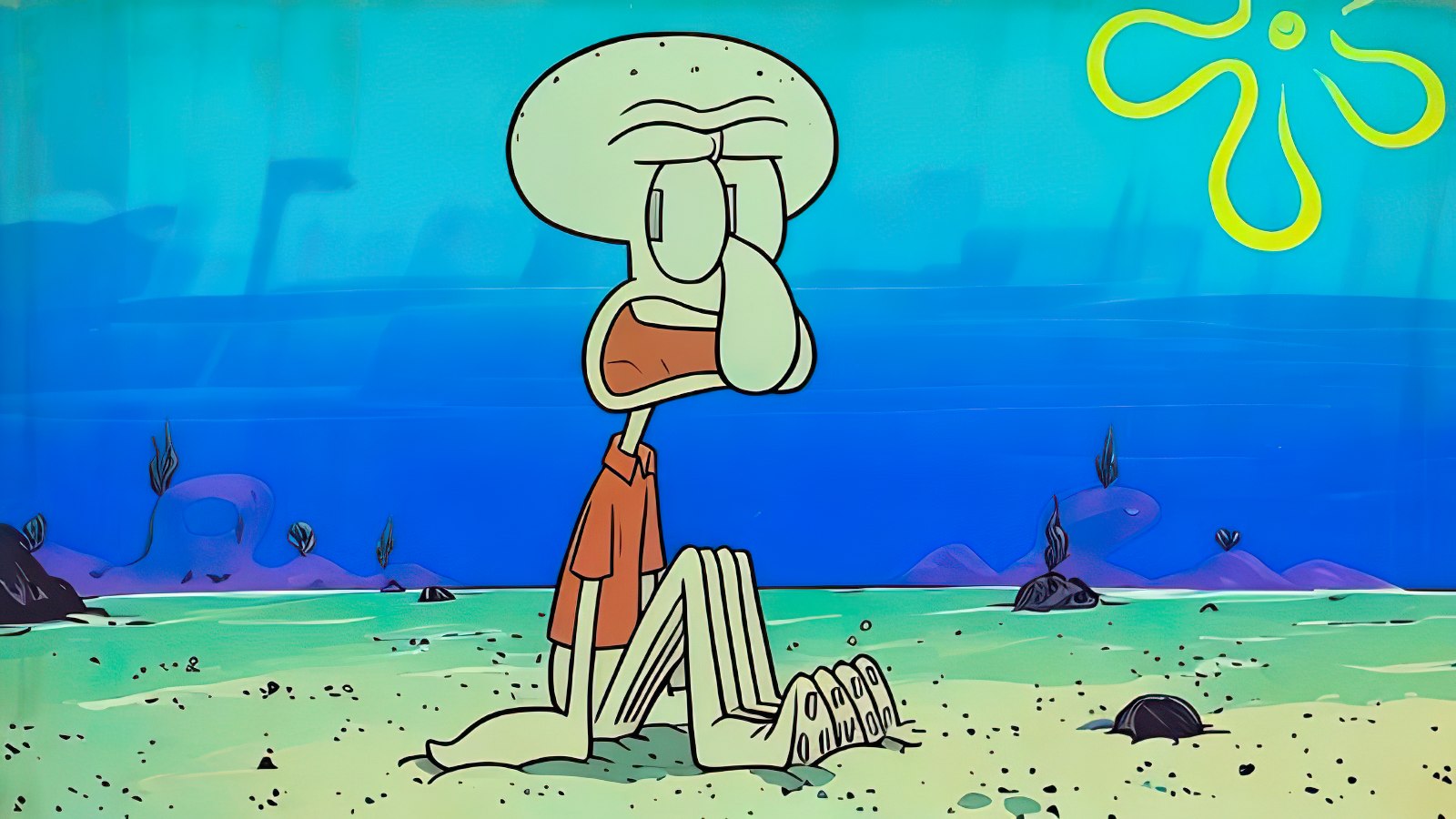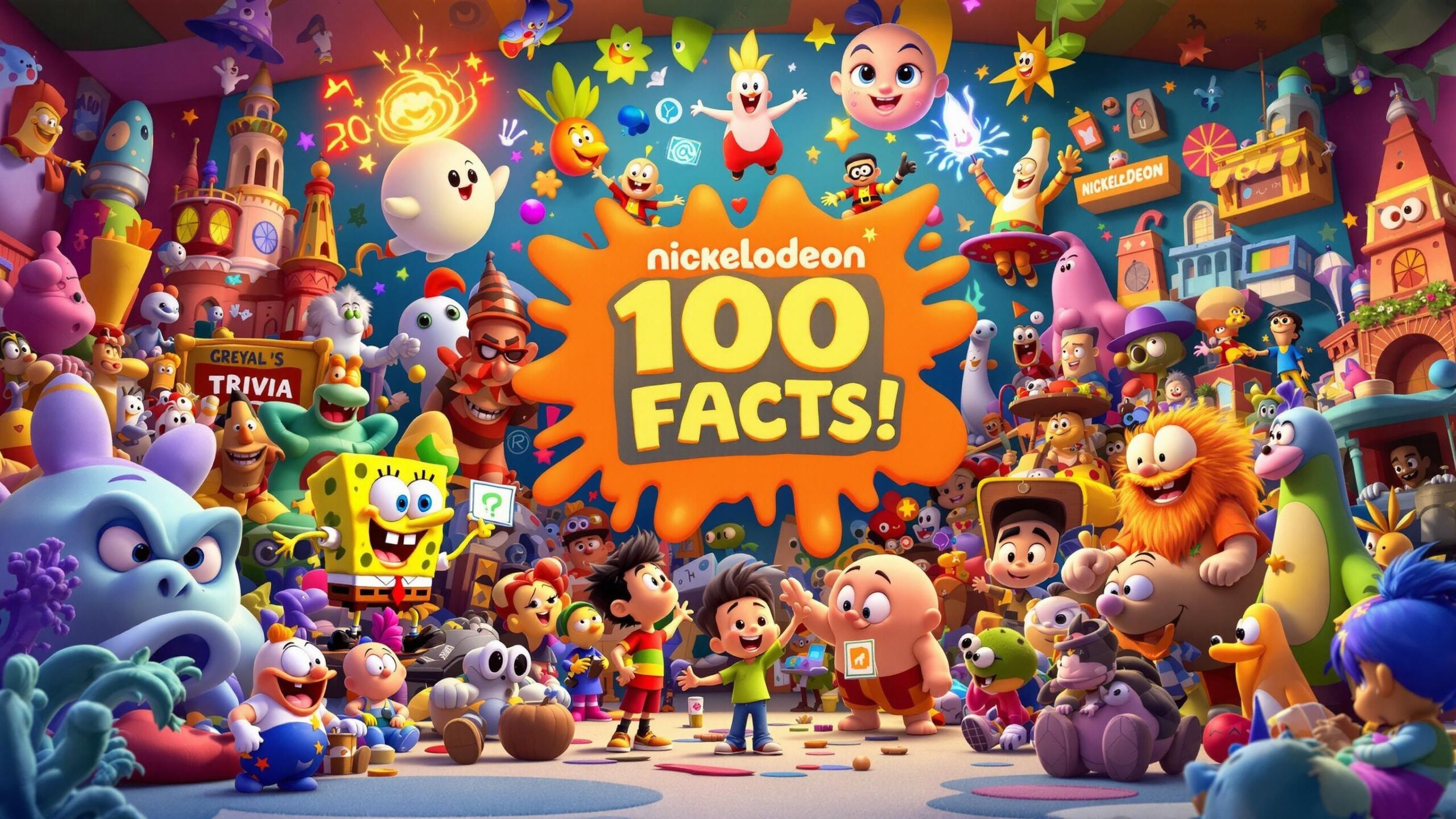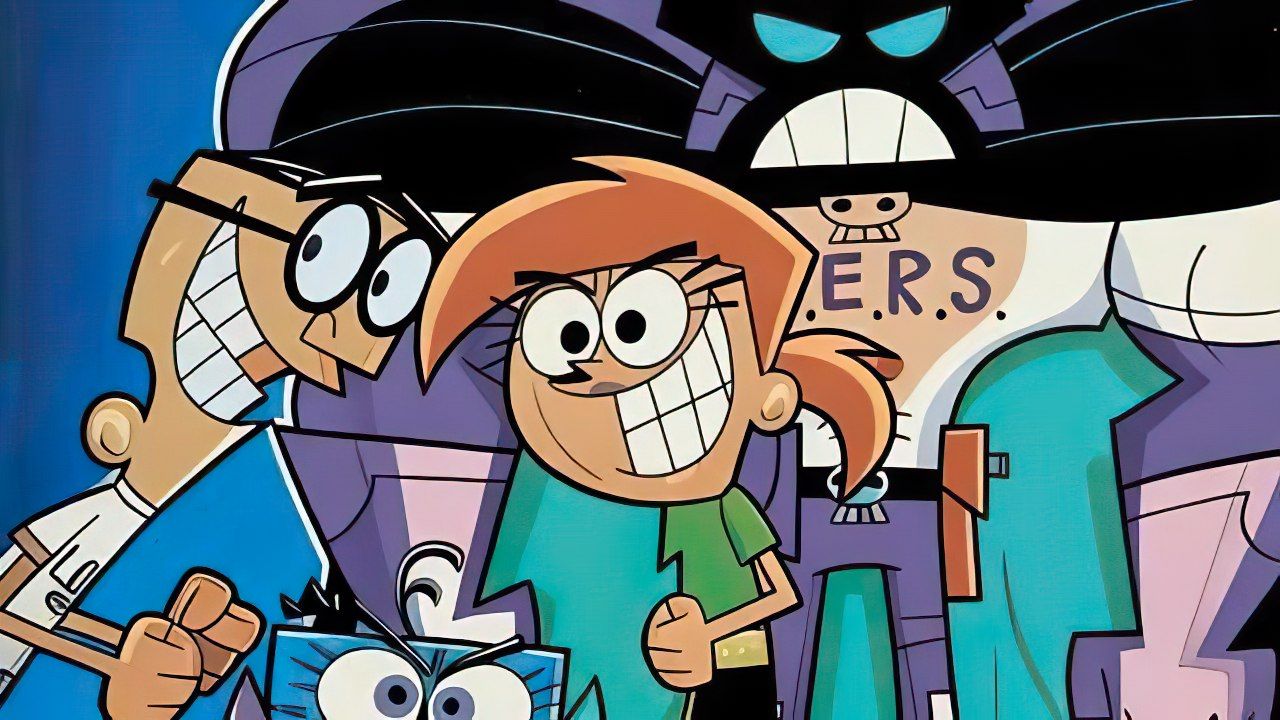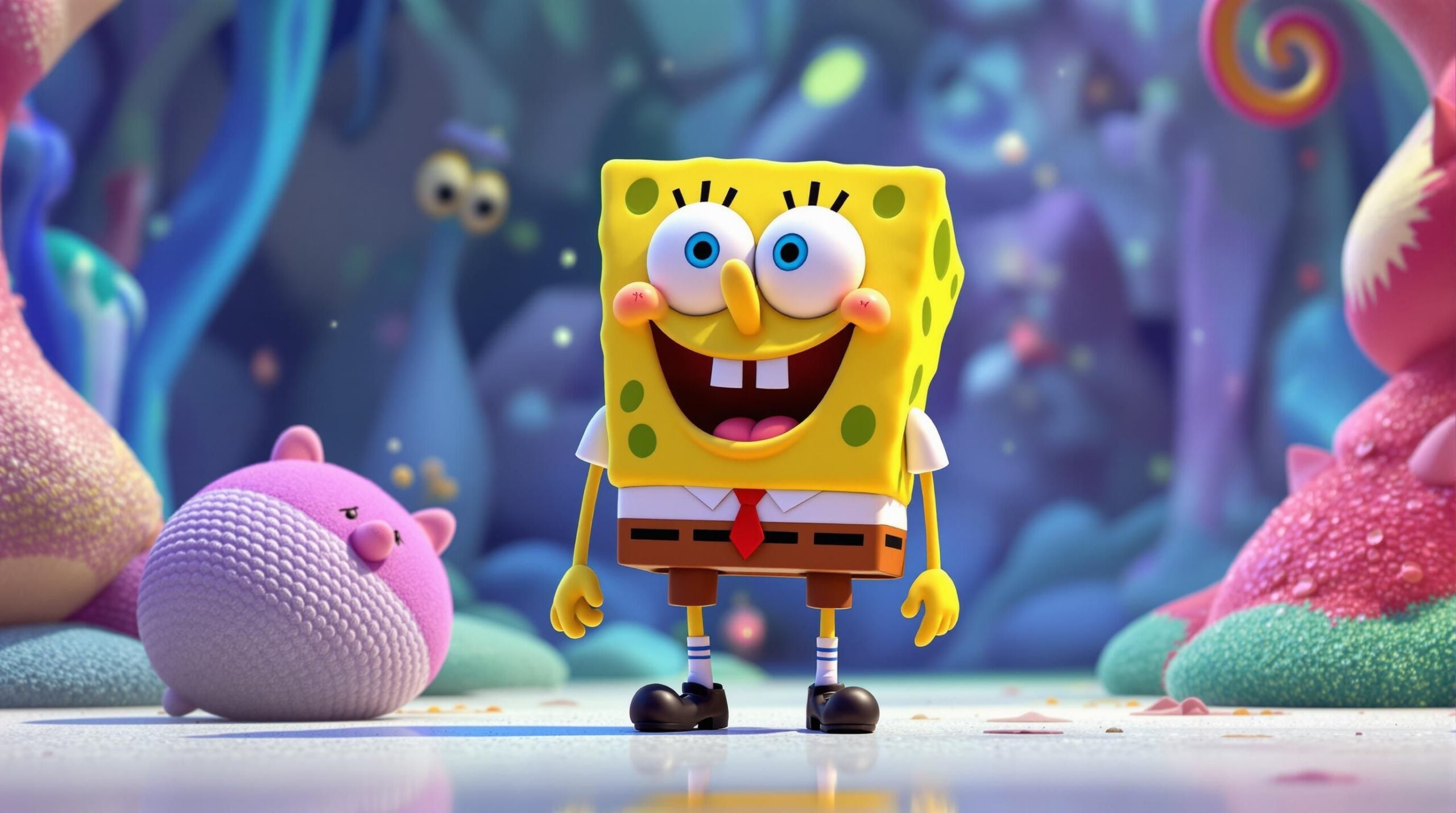In the technicolor universe of SpongeBob SquarePants, where jellyfish sing, burgers fly, and sponges giggle for twenty-four hours straight, there is one aquatic creature who has remained beautifully, stubbornly unimpressed. His name? Squidward Q. Tentacles. His profession? Cashier. His passion? The arts. His vibe? Perpetually done. And in a bizarre twist of cultural irony, this gloomy, clarinet-tooting cephalopod has become the unlikely icon of the internet era.
From meme fodder to full-blown cultural commentary, Squidward has transcended his humble animated beginnings to become something more—a vessel for sarcasm, the patron saint of burnout, and a mood board for anyone who’s ever rolled their eyes at mandatory fun. So how exactly did Bikini Bottom’s most miserable mollusk become the internet’s favorite grump? Let’s dive deep.
The Grumpy Pillar in a Sea of Chaos
Squidward was never meant to be the star. From the very first episode of SpongeBob SquarePants, he was the irritated neighbor, the beleaguered coworker, the straight man to SpongeBob’s eternal optimism. With his drooping eyelids, nasally voice, and passionate distaste for joy, Squidward provided the show’s essential balance. Without him, Bikini Bottom would tip into madness, a whirlpool of giggles and glitter with no grounding force.
But Squidward’s role as the “grump in residence” quickly evolved. Viewers began to notice the nuance in his scowls. He wasn’t just annoyed—he was over it. He wasn’t simply bitter—he was relatable. And while SpongeBob bounced through life with the energy of a confetti cannon, Squidward trudged through it with the fatigue of someone who’s worked retail one day too many. Sound familiar?
The Evolution from Villain to Icon
At first, Squidward was cast as the antagonist in many episodes—throwing a wrench into SpongeBob’s plans, dismissing his enthusiasm, and outright sneering at anything resembling fun. But over time, the audience’s perspective shifted. Suddenly, Squidward wasn’t the bad guy. He was just tired.
As viewers aged, particularly those who had grown up watching SpongeBob, they began to view Squidward through a new, more sympathetic lens. As kids, we rooted for SpongeBob. As adults, we are Squidward. His struggles became eerily familiar: working a job he hates, enduring the forced cheer of overly enthusiastic coworkers, dealing with noise, nonsense, and nap deprivation. The line between fiction and reality blurred—and Squidward’s sigh became the soundtrack of a generation.
Burnout Personified
It’s no secret that the internet loves a good mood. And Squidward? He’s got moods for days. Whether he’s glaring into the void during another shift at the Krusty Krab or enduring SpongeBob’s chirpy banter, Squidward oozes what we now call burnout energy. He is tired, underpaid, underappreciated, and over-stimulated. And the internet has seized upon every exasperated blink and passive-aggressive groan.
In meme culture, Squidward is no longer just a character—he’s a diagnosis. A symptom of overwork. A mood for Mondays. A gif to send when someone asks you to “hop on a quick Zoom.” Screenshots of Squidward laying in bed with his eyes wide open? That’s not just a still from a cartoon. That’s insomnia, baby. That’s existential dread in its purest, teal-tinted form.
The Duality of Squidward: Artist and Cynic
Beyond the sarcasm and grumpiness lies something deeper: Squidward is a dreamer. A misunderstood artist with delusions of grandeur, a passion for the clarinet (despite a noticeable lack of talent), and a taste for the finer things in life. He longs for respect. For recognition. For just five minutes of peace to enjoy his canned bread in the bathtub.
This is the secret to Squidward’s lasting power—he’s not just a grump, he’s a tragic figure. His life isn’t what he hoped it would be, and he copes by being bitter. He throws shade not because he’s mean, but because he’s disappointed—in others, yes, but mostly in himself. He’s the living embodiment of the phrase, “This isn’t what I signed up for.”
And in that way, he taps into a very adult, very internet-age feeling. Wanting more, feeling stuck, and coping with it through snark and sarcasm? That’s not just Squidward—that’s an entire generation trying to balance side hustles, overpriced rent, and the sinking realization that dreams don’t pay the bills.
Squidward vs. SpongeBob: A Cosmic Battle of Energy
At the heart of Squidward’s story is his ongoing rivalry with SpongeBob. It’s a battle of energies: SpongeBob’s boundless optimism versus Squidward’s weary realism. Where SpongeBob sees potential, Squidward sees inevitable failure. Where SpongeBob finds joy in flipping patties, Squidward sees soul-crushing monotony.
And yet, beneath the surface, there’s affection. Squidward would never admit it, but SpongeBob keeps him tethered to the world. There are rare, beautiful moments when Squidward smiles—when he joins in on a song, when he receives unexpected kindness, when he allows himself a flicker of fun. And each of those moments is like a solar eclipse: rare, awe-inspiring, and proof that there’s more to this tentacled pessimist than meets the eye.
Their dynamic resonates so deeply because it mirrors the push-and-pull many people experience within themselves. Part of us wants to embrace joy and silliness. Another part just wants everyone to shut up. Squidward and SpongeBob are the angel and devil on our shoulders—except sometimes, the angel’s voice is way too loud.
Squidward in the Age of Memes
No exploration of Squidward’s internet fame would be complete without acknowledging the golden age of Squidward memes. From “Handsome Squidward” (a brief but unforgettable transformation into a chiseled supermodel) to “Future… FUTURE…” (his existential spiral in a chrome-plated nightmare), Squidward has provided the online world with an endless buffet of memeable content.
There’s the ever-popular “Bold and Brash” art meme, where Squidward’s rejected masterpiece is embraced online as a symbol of misunderstood genius. There’s “Dabbing Squidward,” “Sad Bath Squidward,” and of course, “Window Watching Squidward,” a perfectly melancholic shot of him gazing out at SpongeBob and Patrick’s antics with the expression of someone who has just realized the weekend is over.
Every frame, every sigh, every twitch of his eye has the potential to go viral. Why? Because Squidward doesn’t just react to his world—he reacts for us. He channels the internal scream we’ve all been perfecting since our third unpaid internship.
Reluctant Hero of Adult Animation
As SpongeBob SquarePants continued to delight kids with its wacky humor, Squidward unintentionally became the show’s crossover success with adults. Parents watching with their kids, college students up too late, and twenty-somethings revisiting old episodes began to find Squidward’s misery oddly comforting.
He was a new kind of hero—not triumphant or brave, but real. He dealt with annoying neighbors, soul-sapping jobs, creative roadblocks, and the crushing weight of potential. He showed that you can be miserable and still functional. That you can hate everything and still show up. That sometimes, surviving is the closest you get to thriving.
And in a world where everyone’s chasing productivity hacks and “good vibes only,” Squidward dares to be authentically cranky. He’s the gritty reboot of adulthood no one asked for but everyone needed.
A Symbol of Mental Health Awareness?
Surprisingly, Squidward has become a conversation starter around mental health. His behavior—social withdrawal, irritability, sleep issues, lack of motivation—can mirror symptoms of depression. While the show plays it for laughs, many fans have found comfort in seeing these feelings reflected in a familiar, even lovable, character.
In fan communities and Twitter threads, people open up about how much they see themselves in Squidward—not just the funny parts, but the sad ones. His struggles feel real. His pain, though exaggerated for cartoonish effect, speaks to people who are exhausted by modern life and just want a break. Or a nap. Or a clarinet recital where people actually show up.
The Redemption Arcs You Might’ve Missed
For all his gloom, Squidward does get his moments. There are episodes where he’s genuinely happy, when he lets his guard down and joins the fun. He plays in the band at the Bubble Bowl and conducts an epic halftime show. He throws himself into artistic endeavors with misguided confidence. He sometimes, just sometimes, appreciates SpongeBob’s friendship.
These glimpses of joy don’t erase his grumpiness, but they round him out. Squidward isn’t hopeless. He’s just hardened. And when life gives him a rare win, it’s more satisfying than any Krabby Patty ever could be.
Why We’ll Always Love Him
At the end of the day, Squidward Tentacles is us. Not the version we present on social media, filtered and curated—but the version curled up on the couch after a long shift, quietly wondering where the time went. He’s messy. He’s moody. He’s funny without trying to be. And somehow, his refusal to pretend things are fine has become a strange kind of comfort.
In a world demanding constant positivity and hustle, Squidward offers a gentle reminder: it’s okay to be annoyed. It’s okay to hate your job. It’s okay to pursue a passion that you’re not even that good at. You don’t have to sparkle all the time. Sometimes, it’s enough just to exist—and maybe mutter a sarcastic comment or two.
Final Thoughts from the Easter Island Head
So here’s to Squidward Tentacles, the unlikeliest icon of our time. He didn’t set out to be a hero. He didn’t ask for fame, followers, or fan edits on TikTok. All he ever wanted was peace, art, and maybe a decent seat at the symphony.
Instead, he became a voice for the tired, the overworked, the socially drained, and the spiritually exhausted. And in doing so, he proved that you don’t have to smile to be loved—you just have to be honest. Even if that honesty comes in the form of a clarinet solo so bad it makes snails cry.
Long live Squidward Tentacles: the clarinet-blowing, bath-loving, eternally exhausted king of our hearts.




